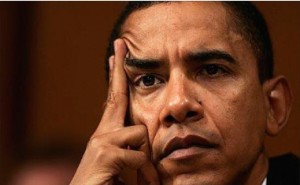
By Yale Weiss
The Nov. 2 election saw huge changes in the dynamics of the United States government, at pretty much every level. With the Republicans taking control of the House, narrowing the gap in the Senate and wresting 10 new governorships from the Democrats, this election is one of the most significant shifts in power in American history. Maybe.
It?s unlikely that anyone in 2008, when the Democrats swept up control of the House, Senate and White House, could?ve predicted that so much of it would go back to the Republicans in a short two years. Then, with the majority of Americans feeling disillusioned about eight years of Bush, clamoring for an end to war and panicking about the collapsing economy, if anything, it seemed that things would be swaying the Democrats’ way for the foreseeable future.
What made it worse (or better) is that the people who did step up for the Republicans that year were among the least unifying and most polarizing the nation?s seen in mainstream politics: one need only mention the name ?Palin? to split rooms in two.
Contrary to any sense of logic or reason, the way the Republicans spent the last two years was encouraging more polarizing and more radical movements, from which has sprouted the now infamous ?Tea Party.? On the other end of the spectrum, the Democrats have been pushing for reconciliations and union. Interestingly, it’s the Republicans who have come out on top. In this case, polarization not only trumped union, it obliterated it.
What is perhaps most interesting about the 2008 elections and the 2010 elections is that, in spite of the issues not changing, the tactic Americans want to take seems to cycle in and out with the same politicians we cycle in and out. In 2008, the big three issues were the economy, the war and healthcare reform. Now, the biggest priorities continue to be the economy, the war and, to a somewhat lesser extent, healthcare and energy reform.
The main message that Obama and his compatriots brought to the table in 2008 was that the ?hands-off? domestic policy and the ?hands-on? foreign policy of the Bush administration was ineffective and failing. In order to amend it, he proposed greater government restrictions on business, a slimming of the U.S. presence in Iraq and greater government investment in domestic resources (green alternatives). To whatever extent he delivered on that premise, he certainly did some things differently than Bush.
Now, Americans have put the Republicans back seeking to go back to very methods that made them vote the Republicans out in the first place. That?s a bit uncritical though: Americans now, instead of complaining that the government wasn?t doing enough under Bush, would like to see the government do even less as a result of not being appeased by what more the government has done under Obama. In short, we?re going full circle, swinging from one end to the other.
Albert Einstein famously said, “Insanity: doing the same thing over and over again and expecting different results.” Americans have been switching people representing the same practices and methods in and out of the government since the beginning.
I can?t say I understand how electing the same people over and over again, just rotating them in and out for every other election, makes any sense at all. The issues don?t really change and, moronically, neither do the solutions. We?ve been having economic problems since the beginning of time. We?ve seen what works and what doesn?t. If the government is completely laissez-faire, then corruption and abuse ensues (monopolies for example). If the government is too controlling, it runs up a debt and it damages efficiency and creativity.
Also, if something doesn?t work, making it more radical doesn?t make it work. If some Republican idea wasn?t good, how is it even possible that the same idea, only more radical, would be good (yes, this is aimed at the tea party)? Of course, the same applies to the Democrats, who are equally guilty of this irrational thought pattern.
In the end, the problem isn?t necessarily the parties but the people who vote for them. If we want something to get done, it would probably be intelligent to elect someone who represents some rational and practical ideas on how to reform an ailing government — otherwise, we might as well not vote (George Carlin anyone?). One thing I can say for certain: continuing the cycle of voting in and voting out the same ideas is neither allowing those ideas to be tried nor is it even remotely sensible. Pick a side, stick with it, wait for some results and then judge.






